Intensive Outpatient Programs for Anxiety Disorders
Written and medically reviewed by the clinical team at Continuum Outpatient Center, including licensed therapists, addiction specialists, and medical professionals.
Introduction to Treatment for Anxiety Disorders
An estimated 6.8 million adults in the United States suffer from general anxiety disorder. Of this number, only 43.2% are receiving treatment. For some, outpatient treatment is enough to reduce symptoms. Some individuals, though, may need a more intensive form of treatment.1
Intensive outpatient program (IOP) anxiety treatments can be beneficial for those seeking a higher level of care. They provide intensive care in a flexible environment where patients may return home in the evenings.2

What Is An Intensive Outpatient Program?
An intensive outpatient program is a structured and comprehensive form of treatment. It allows individuals to receive therapy and support while maintaining their daily routines. Most often, it is used to treat substance use disorder (SUD) or other mental health conditions.
Participants attend several sessions per week, usually for anywhere from three to five days. Each session lasts several hours per day. This level of care falls between outpatient services and inpatient programs.
An IOP often includes:
- Individual counseling
- Group therapy
- Psychoeducation
- Medication-assisted treatment
- Holistic therapies
A Deeper Dive Into Intensive Outpatient Program Anxiety Treatment
Structured Sessions
Comprehensive Approach
Intensive outpatient program anxiety treatment also offers a comprehensive approach to treating anxiety. It uses various therapeutic modalities which can include cognitive-behavioral therapy, mindfulness and meditation, and trauma-based therapy.
This multifaceted approach addresses different aspects of anxiety. As a result, it provides a well-rounded treatment experience.
Flexibility of Daily Life
Group Support
- Sharing experiences
- Gaining insights
- Building a sense of community
Focus on Skill Building
These programs also emphasize skill-building exercises. These provide individuals with practical tools for managing anxiety, such as:
- Coping strategies
- Relaxation techniques
- Emotional regulation skills that individuals can integrate into their daily lives
Therapeutic Progress Monitoring
Integration with Daily Life Challenges
Continuity of Care
How Does an IOP Cater to Individuals With Varying Levels of Anxiety Severity?
Individualized Assessment
- Anxiety symptoms
- Risk factors
- Mental health
- Physical health
- Co-occurring disorders
Frequency and Intensity of Sessions
Skill-Building and Coping Strategies
Gradual Progression
What Are The Primary Goals And Objectives of an Intensive Outpatient Program Anxiety Treatment?
- Improved Emotional Regulation: Enhancing emotional regulation allows individuals to manage and respond to emotions in a healthier way.
- Increased Self-Awareness: Greater self-awareness helps individuals understand the root causes of their anxiety.
- Behavioral Modification: Addressing maladaptive behaviors supports positive behavioral changes, leading to improved outcomes.
- Enhanced Social Functioning: Improving interpersonal skills and social functioning reduces anxiety-related difficulties.
- Cognitive Restructuring: Challenging negative thought patterns helps individuals reshape their thinking.
- Exposure and Desensitization: Gradual exposure to anxiety-provoking situations promotes desensitization. This reduces avoidance behaviors and empowers individuals.
- Relapse Prevention: Developing strategies for recognizing and preventing relapse contributes to the maintenance of progress.
- Empowerment: Empowering individuals to participate in their treatment and recovery fosters a sense of control over anxiety.
- Improved Quality of Life: Addressing the impact of anxiety on various life domains enhances well-being and quality of life.
- Increased Resilience: Cultivating resilience helps individuals bounce back from stressors.
- Individualized Treatment Goals: Working towards individualized goals ensures that treatment aligns with the unique needs of each participant.
- Education and Psychoeducation: Providing education and psychoeducation equips individuals with knowledge about anxiety and effective coping strategies.
- Personal Growth: Encouraging personal growth and self-discovery contributes to a sense of accomplishment and fulfillment.
Therapeutic Modalities And Evidence-Based Techniques Used in Intensive Outpatient Program Anxiety Treatments
Cognitive-Behavioral Therapy (CBT)
Mindfulness-Based Stress Reduction (MBSR)
- Manage stress
- Increase self-awareness
- Cultivate a non-judgmental acceptance of thoughts and feelings
Dialectical Behavior Therapy (DBT)
Group Therapy
- Share experiences
- Gain insights
- Receive feedback
Further Benefits of Group Therapy
Relaxation Techniques
- Progressive muscle relaxation
- Deep breathing exercises
- Guided imagery
Expressive Arts Therapy
Trauma-Informed Approaches
This method recognizes the impact of trauma on mental health. It incorporates trauma-informed care principles. This works to ensure a safe and supportive environment for individuals who may have a history of trauma.
Many individuals with anxiety have often struggled with traumatic events as well. This type of therapy helps individuals get to the root causes of these issues and work through them.
Potential Challenges Associated With Intensive Outpatient Program Anxiety Treatment
Time Commitment
Financial Costs
Transportation
Stigma
Group Dynamics
Resistance to Treatment
Limited Customization
Access to Specialized Care
Crisis Management
Dropout Rates
- Outside problems
- Lack of motivation
- Travel issues
Limited After-Hours Support
Reliance on Self-Management
Successful outcomes in an IOP often call for active participation and commitment from individuals. Individuals who struggle with self-management may find it hard to use learned strategies.
Transition to Lower Levels of Care

Learn More About Intensive Outpatient Program Anxiety Treatments with Continuum Outpatient Center
Anxiety treatments at intensive outpatient programs are invaluable for mental health challenges. Because of this, our team at Continuum Outpatient Center aims to offer a variety of choices for our patients.
Our IOP offers a range of treatments, such as holistic therapies and expressive arts. These treatments are designed to meet your specific needs while providing you further help in order to work through symptoms or other hardships.
We also highly value evidence-based treatments, such as medication-assisted treatment (MAT) and cognitive-behavioral therapy (CBT). This helps provide a balanced treatment program for your needs.
Get in Touch Today
Our San Antonio, Texas, team is ready to help you or your loved ones heal. Our intensive outpatient program anxiety treatment options are here to support you every step of the way during recovery.
Get in touch with us at Continuum Outpatient Center for holistic care today. We are here to give you the help you need.


